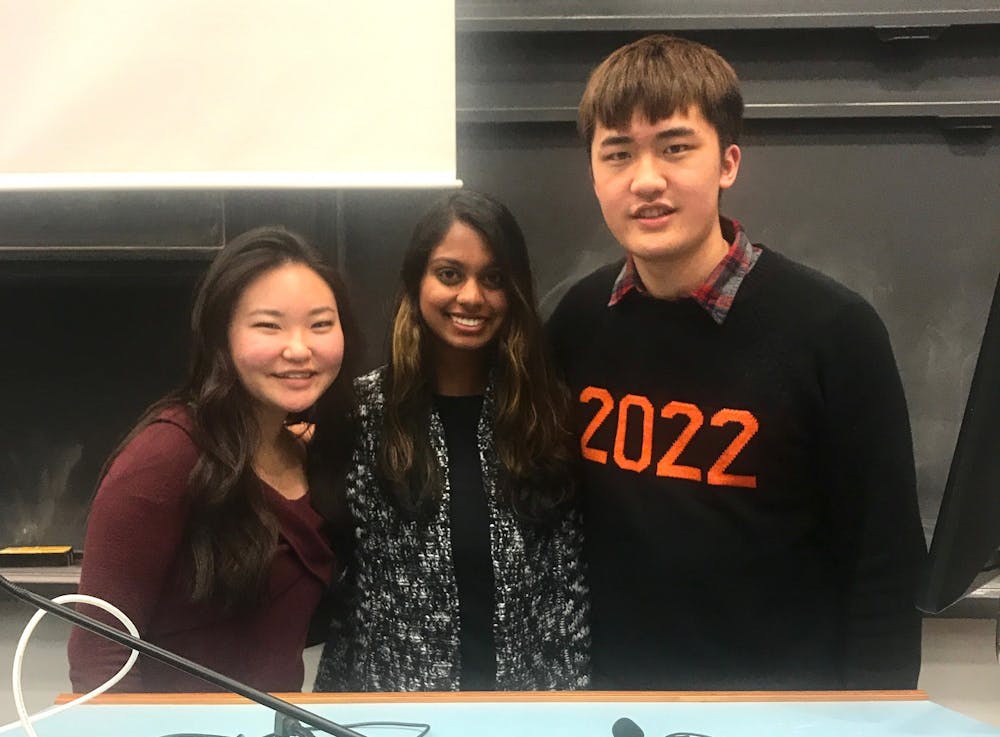On Tuesday, March 3, the Undergraduate Student Government (USG) and mental health advocacy club Letters to Strangers (L2S) released their 30-page Mental Health Guidebook, a compilation of University mental health resources, student testimonials, and information about important policies like leaves of absences and insurance plans. It also provides information on how to seek help off-campus.
The guidebook is organized into seven parts: Counseling and Psychological Services, Off-Campus Care, Mental Health and Academics, Leaves of Absence, Helping Friends, Alternative Resources, and Advice from Students.
The partnership between USG and L2S started in December 2019 after L2S conducted independent surveys about students’ experiences with campus services and what they would like more information on regarding mental health resources. USG then combined its information with L2S and began work on the guidebook.
A deeper focus on mental health was one of the five pillars USG President Chitra Parikh ’21 built her campaign upon, the other four being Title IX Reform and Sexual Misconduct; Housing, Dining and Transportation; Sustainability; and Accessibility of Resources and Information.
Parikh described how this guidebook differs from the many packets and brochures students are given during orientation.
“It’s comprehensive, but there’s that peer-to-peer element of it. There are aspects of it that you may not be thinking about at orientation, like leaves of absences,” she said. “I find the anonymous student quotes to be really valuable. They kind of show that you're not alone and that there are support systems for you, not only in terms of the University, but also in terms of your peers.”
L2S president Hannah Reynolds ’22 echoed this statement in an email to The Daily Princetonian.
“Not only do [the testimonials] offer good advice, but I think normalizing the idea of acknowledging mental illness and taking the time and space to get help is really important. Princeton students are often on the grind, and I think it can feel a little isolating and ‘abnormal’ to be struggling with mental health,” she wrote.
Mental Health Task Force Chair and U-Councilor Chair Allen Liu ’22 added he wants to create more transparency about these resources outside of publishing this guidebook.
“While the guidebook is a good start to doing that, I also think that continuing to look at different ways for students to be able to find this information and get in touch with people at McCosh or people who manage the different funds or centers would go a long way,” he said.
Liu shared that he is trying to increase the visibility of the guidebook by working with campus organizations like University Health Services to get it published on their website.
“We’ll see how those plans work out, but personally, I just hope a lot of students are able to see the guide and make use of it,” he added.

Parikh discussed how the guidebook’s publication segues into other efforts that USG is making to make mental health resources on campus more transparent and accessible for everyone.
“Moving forward, we’re hoping to work with Dr. Chin to expand the number of prescribing [insurance] providers on the Exclusive Provider Network,” Parikh said. “Beyond that, we’re hoping to work with various campus life administrators on emergency funds and attempting to increase the transparency of those.”
Reynolds described the future steps L2S will be taking to further the discussion of mental health on campus.
“L2S is working on a couple of events coming up, one with a mental health activist Dior Vargas and a couple of discussions/panels on mental health with the Mental Health Initiative/USG,” she wrote to the ‘Prince’ in an email.
“I hope these will continue the conversation on mental health on campus,” she continued. “Additionally, we collected a lot of feedback on mental health resources on campus and hope to use these to work with CPS to make these resources more accessible for students.”
Before publication, Director of Counseling and Psychological Services Dr. Calvin Chin, Director for Disability Services Elizabeth Erickson, and Senior Associate Dean of College Claire Fowler reviewed and verified the contents of the guidebook.








